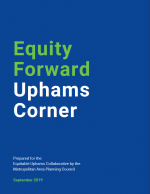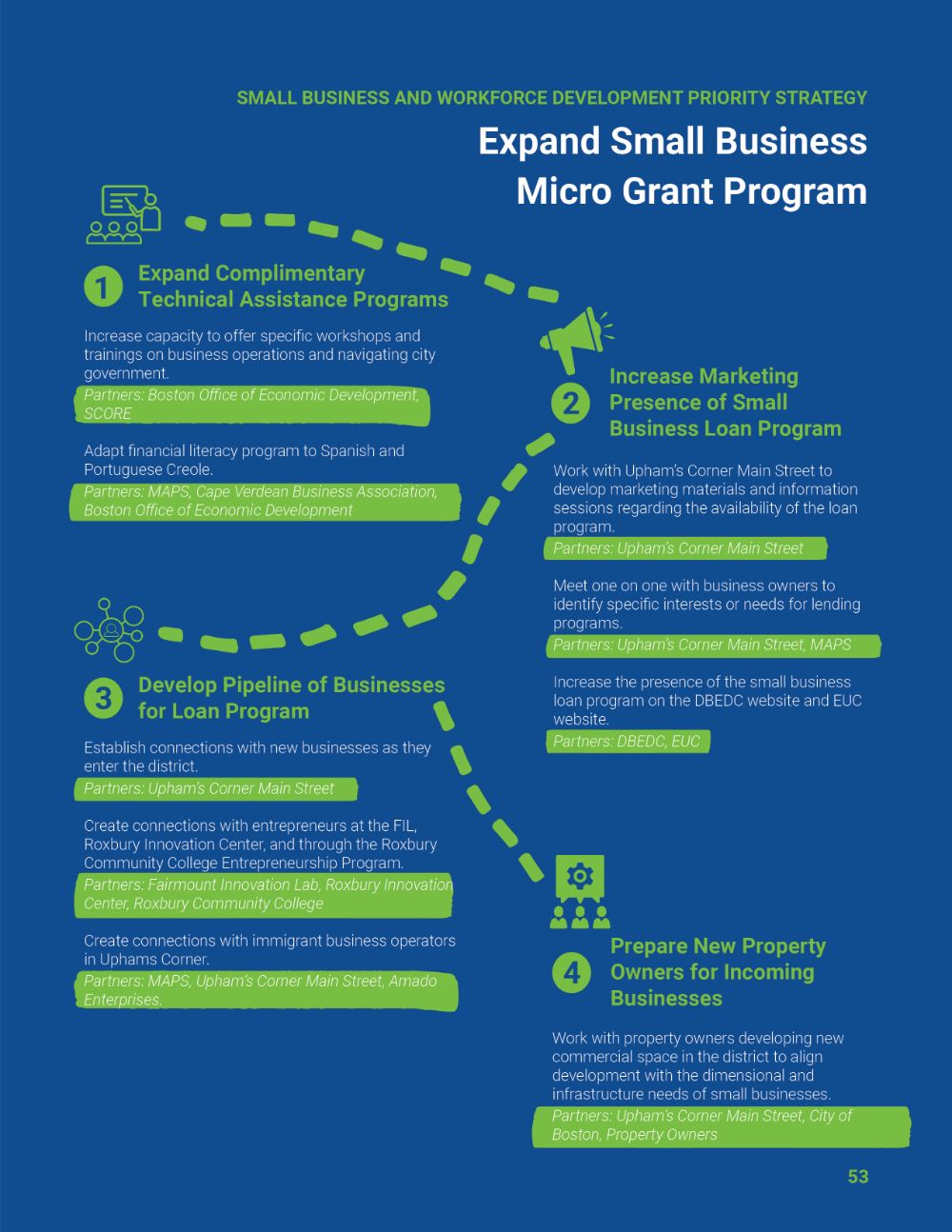
Equity-Forward Development in Uphams Corner
Across the Boston region and the United States, neighborhoods are experiencing significant economic changes. In some cases, residents can ride the wave of the economic surge and see their lives improve. Unfortunately, not all are lifted by this wave: many have been limited by a history of racial, legal, and social discrimination. The legacy of discriminatory practices like redlining and racially-motivated lending practices continues to impact low-income communities of color. The inequity we see today is a result of generations unable to buy a home in desirable neighborhoods, accumulate wealth, find good employment opportunities, and live healthy lives. As historically low-income minority neighborhoods become attractive for development and investment, longtime residents and families find it difficult to hold onto their homes, jeopardizing the communities that people of color fought hard to create.
It does not have to be this way. In one neighborhood, a set of partners banded together to build a platform to make sure those with long social and economic ties to the neighborhood will benefit from economic changes. In Uphams Corner, the Dorchester Bay Economic Development Corporation and a number of partner organizations developed a roadmap to equitable economic development with the help of MAPC. Mixing tools such as small business microgrants, preserving home affordability by taking homes off the speculative market, and innovative financing, the roadmap shows how community organizations can foster equitable growth for a healthy and prosperous neighborhood.
Interested in working with us on a neighborhood-centered equitable economic development project?
We're interested in working with you! Email [email protected] for more information.
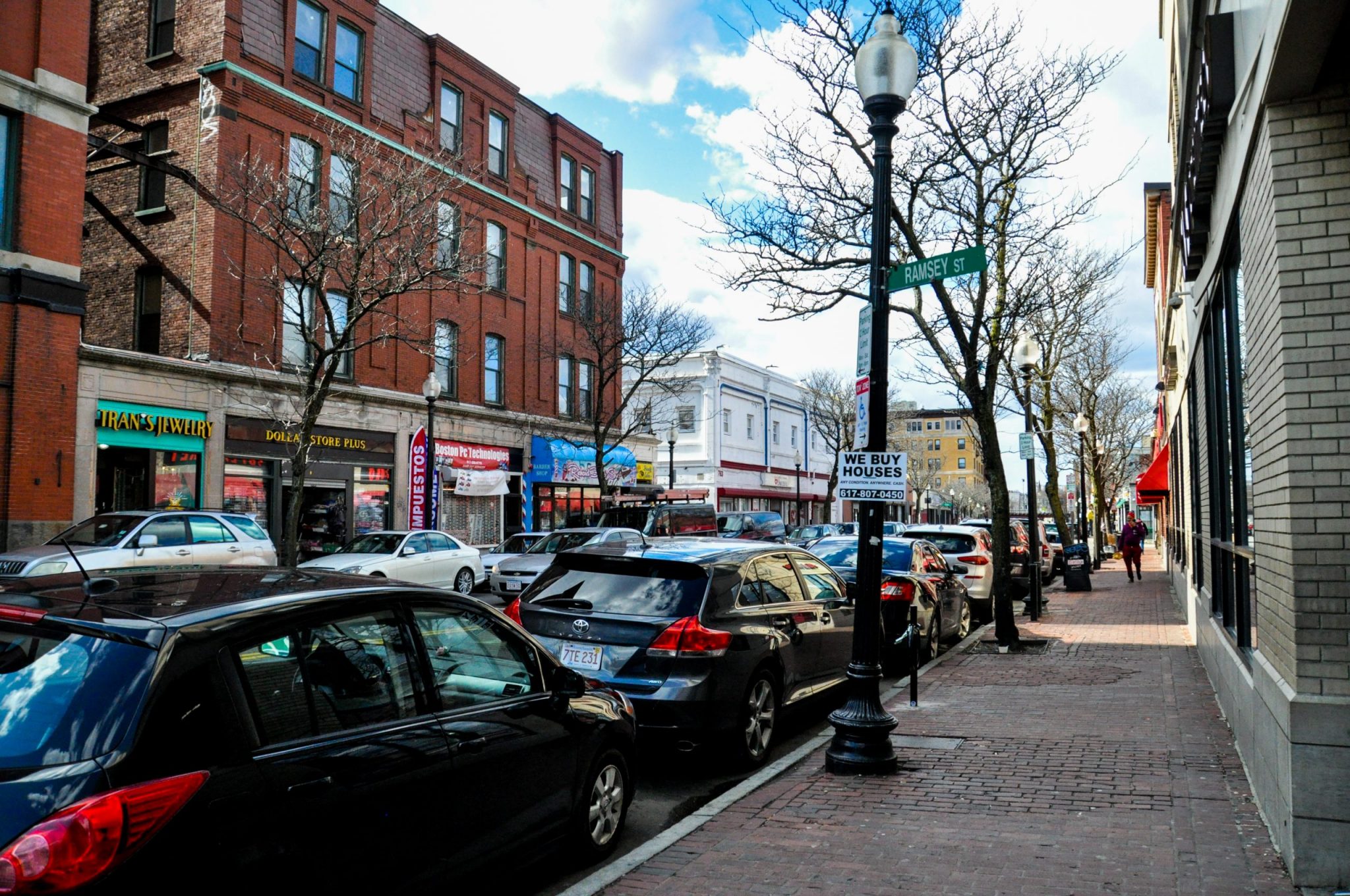
The Project
Uphams Corner—a historic commercial district in Dorchester and one of the most diverse neighborhoods in Boston—is on the cusp of drastic change. The neighborhood was designated as an Arts and Innovation District by the City of Boston in 2017 with the intention of leveraging several city-owned properties, including the historic Strand Theatre, toward new development. Acutely aware of the impact this new development might have on the community, the city led a community visioning process on the future of Uphams Corner, highlighting the potential vulnerability of residents and businesses to displacement as a result of investment and real estate interest.
While proposals to protect tenants, stabilize rents, and support small businesses are making their way through government networks, the Equitable Uphams Collaborative (EUC), a coalition of Boston-based economic development, health, and housing organizations, identified a need for capital deployment at the ground level to prevent the immediate impacts of displacement and came together to develop a joint community investment strategy.
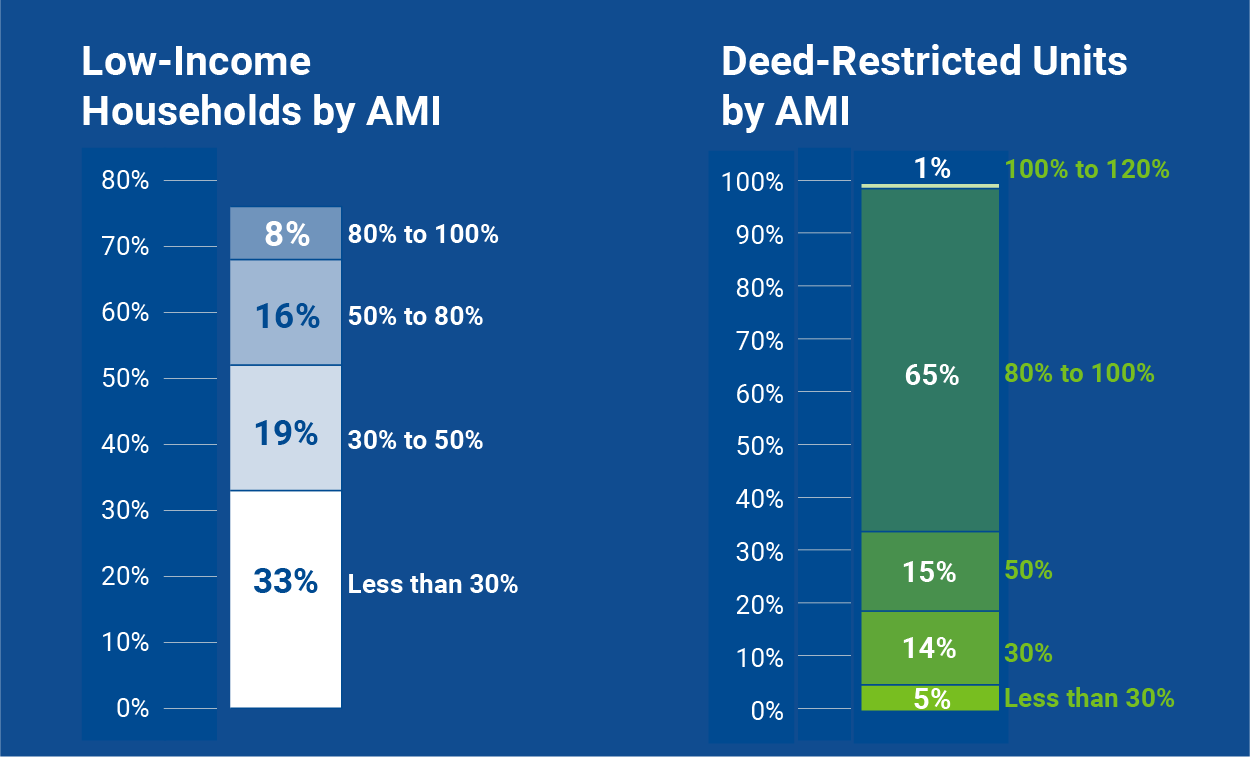
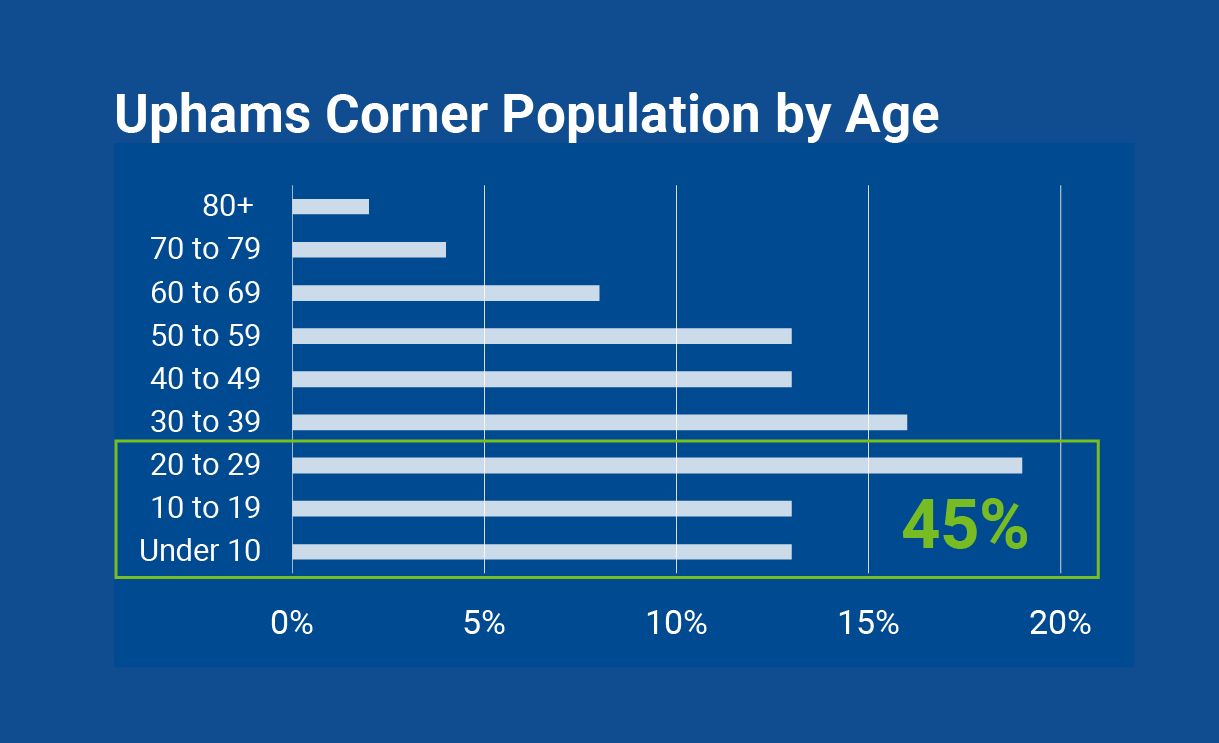
The Equitable Uphams Collaborative brought MAPC into the project to do the detailed research needed to lay out options for what these thoughtful prevention strategies could do. MAPC came to the project with a high-level view as a regional planning organization, capacity to evaluate very granular data, and committed practice to community-based planning and equity across disciplines. Members of MAPC’s economic development, housing, and public health teams collaborated to bring different perspectives and ideas to the analysis and planning.
Equitable Uphams Collaborative
- Dorchester Bay Economic Development Corporation
- BlueHub Capital
- Corporation for Supportive Housing
- Boston Medical Center
- Community Economic Development Assistance Corporation
Community Partners
- Upham’s Corner Main Street
- Dudley Street Neighborhood Initiative
- City of Boston Department of Neighborhood Development
- City of Boston Office of Economic Development
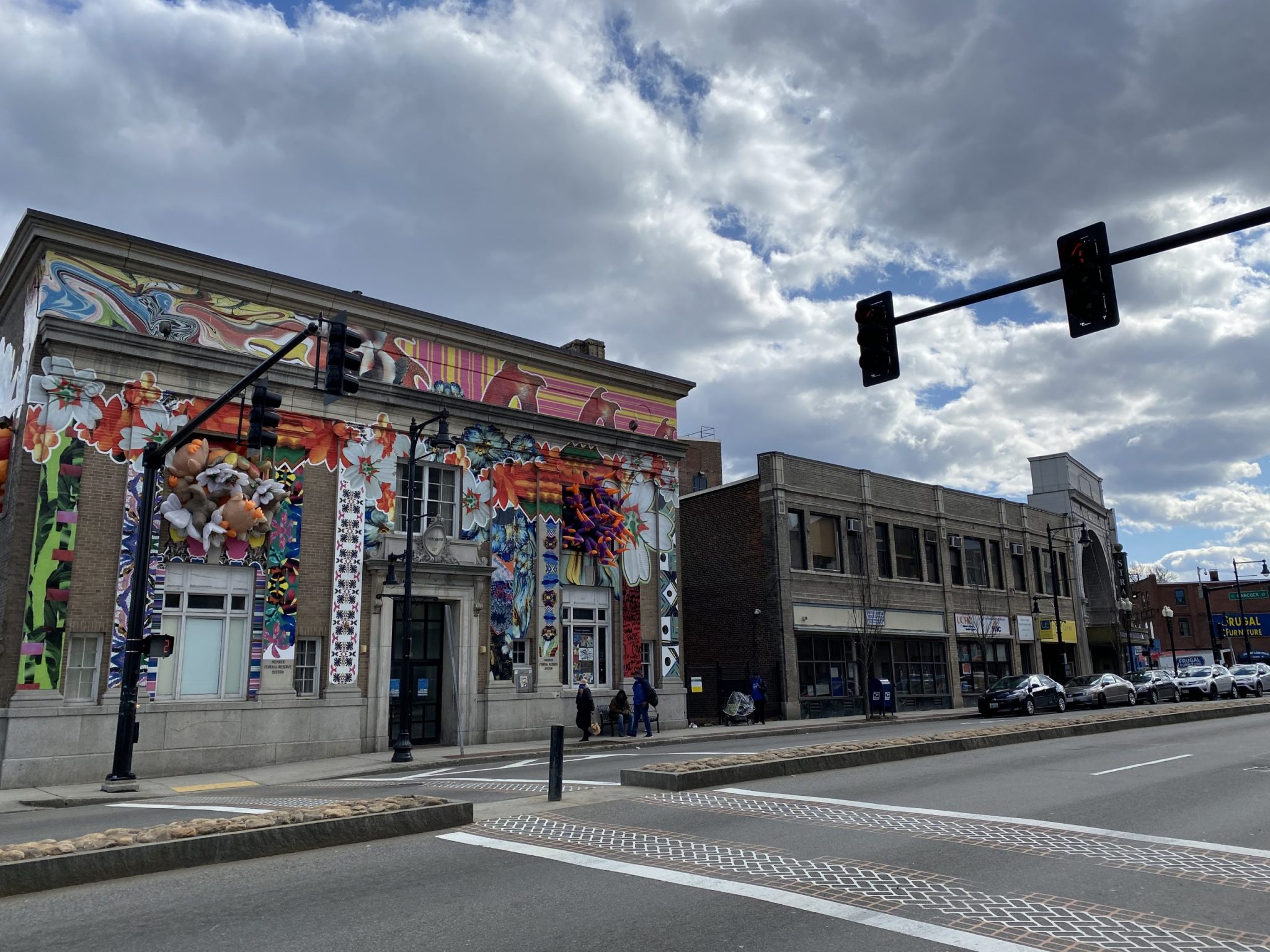
Innovative Planning Process
From the beginning, Equitable Uphams Corner explicitly centered equity in the planning process. The client partners developed their own definition of equitable investment, which MAPC used as a mandate to figure out how they could deploy capital.
While proposals to protect tenants, stabilize rents, and support small businesses are making their way through government networks, the Equitable Uphams Collaborative (EUC), a coalition of Boston-based economic development, health, and housing organizations, identified a need for capital deployment at the ground level to prevent direct displacement and mitigate the indirect displacement pressures caused by increased market activity. The group came together to develop a joint community investment strategy.
MAPC met with core project partners and stakeholders on a monthly basis to review research and recommendations collectively, ensuring in-depth knowledge and an information flow for core partners, key stakeholders, and others involved. The bulk of these meetings focused on MAPC’s analysis of three research topic areas: Supportive Housing, Neighborhood Affordability, and Small Business Support and Workforce Expansion. These three topics emerged as key areas where the EUC could make the most impact related to their goal of equitable development.
In addition to exploring these implementation strategies, MAPC and the EUC created an Inclusive Growth Index (IGI) to evaluate if future investments in Uphams Corner are aligned with community priorities and promote equity-driven development. The Index is a series of questions specific to Uphams Corner that the EUC can use as a tool to evaluate and score proposed projects that the Collaborative is considering investing in. The tool is designed to answer the following questions:
- Does the investment or prosed project center community voice?
- Is it aligned with existing plans and stakeholder priorities?
- Is it impactful?
- Is it feasible?
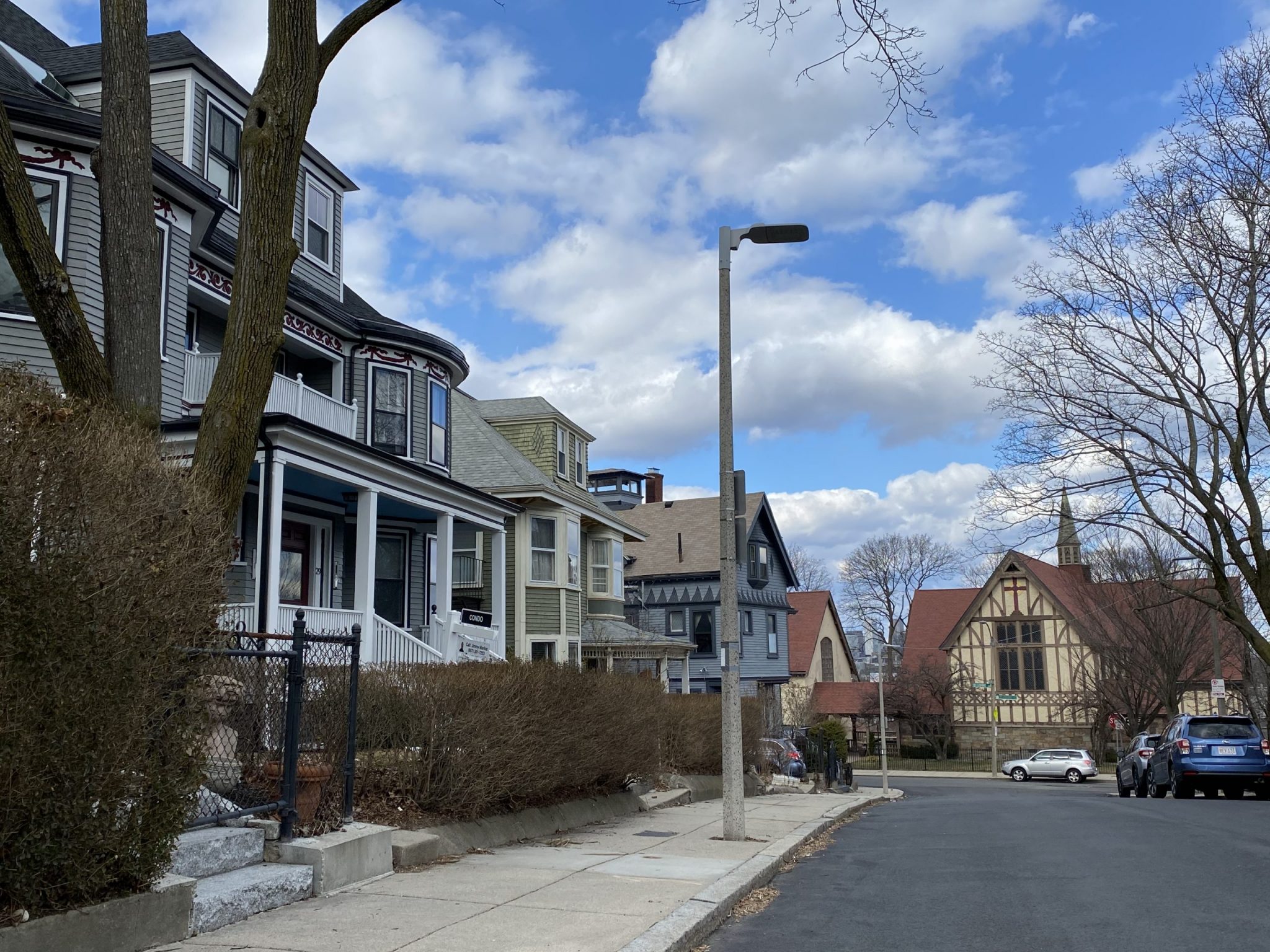
Strategies to Achieve an Equitable Uphams Corner
MAPC’s research into each topic area involved a deep dive into data, stakeholder outreach and interviews, and a review of relevant literature. For each topic, MAPC identified strategies the EUC could use to advance equity. The EUC then identified a priority strategy for each topic and worked with MAPC to identify the steps needed to carry out the strategy.
Neighborhood affordability
Priority Strategy: Developer Acquisition
Take naturally occurring affordable housing off the speculative market to preserve affordability. Tools to support this strategy include lines of credit, grants, low-interest or deferred loans, and operating subsidies (e.g. operations grant or housing vouchers).
Click here to learn more about Neighborhood Affordability in Uphams Corner.
Supportive Housing
Priority Strategy: Flexible Subsidy Pool
Combine public and private funding sources to capitalize on a fund that can be used to subsidize operating costs for supportive housing, quick-strike property acquisition, deeply affordable housing, and low risk, affordable commercial space. Funds can be targeted to meet a project’s most pressing need including tenancy supports (e.g. vouchers, move-in costs) and supportive services.
Click here to learn more about Supportive Housing in Uphams Corner.
Small Business Assistance and Workforce Development
Priority Strategy: Expanded Micro Loans
Provide financing to new and existing businesses as well as startups exiting the Fairmount Innovation Lab or other nearby incubators. Strategy could prepare a pipeline of businesses ready to take on new commercial spaces coming online as part of the upcoming development of city and private properties.
Click here to learn more about Small Business Assistance and Workforce Development in Uphams Corner.
In the Future
MAPC hopes to continue to work with community organizations and on equitable anti-displacement plans in the future. Have a project idea or a question? Contact Josh Eichen at [email protected].
To learn more about Equitable Uphams Corner, read the full plan here: https://www.mapc.org/resource-library/equity-forward-uphams-corner.

